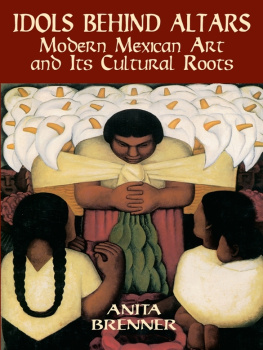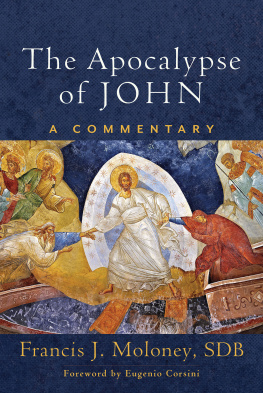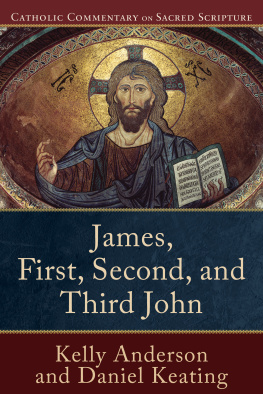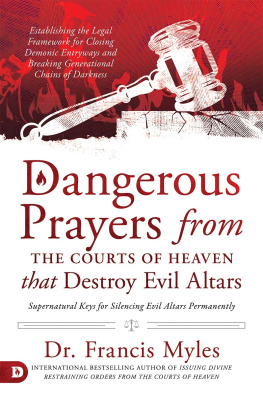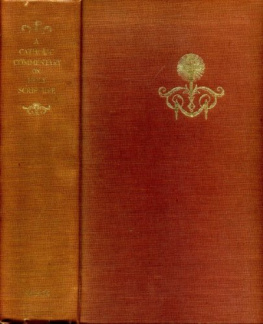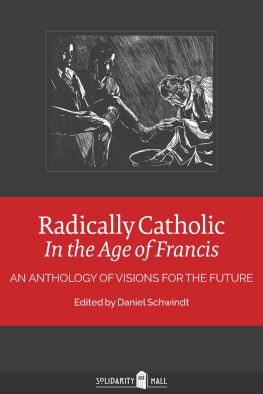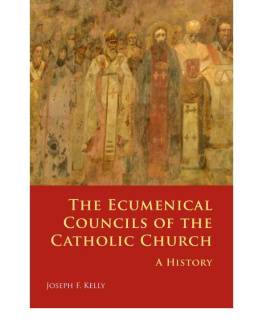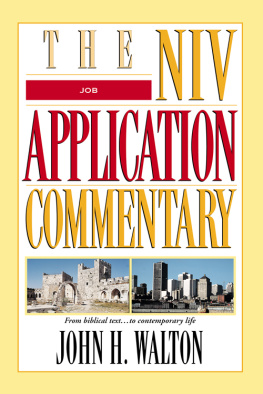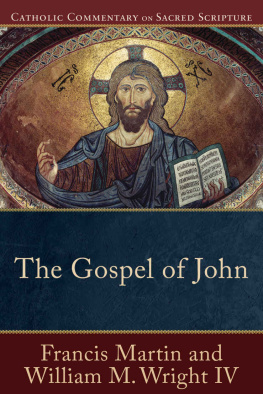Francis Kelly - Blood-Drenched Altars: A Catholic Commentary on the History of Mexico
Here you can read online Francis Kelly - Blood-Drenched Altars: A Catholic Commentary on the History of Mexico full text of the book (entire story) in english for free. Download pdf and epub, get meaning, cover and reviews about this ebook. year: 2016, publisher: TAN Books, genre: Art. Description of the work, (preface) as well as reviews are available. Best literature library LitArk.com created for fans of good reading and offers a wide selection of genres:
Romance novel
Science fiction
Adventure
Detective
Science
History
Home and family
Prose
Art
Politics
Computer
Non-fiction
Religion
Business
Children
Humor
Choose a favorite category and find really read worthwhile books. Enjoy immersion in the world of imagination, feel the emotions of the characters or learn something new for yourself, make an fascinating discovery.

- Book:Blood-Drenched Altars: A Catholic Commentary on the History of Mexico
- Author:
- Publisher:TAN Books
- Genre:
- Year:2016
- Rating:3 / 5
- Favourites:Add to favourites
- Your mark:
- 60
- 1
- 2
- 3
- 4
- 5
Blood-Drenched Altars: A Catholic Commentary on the History of Mexico: summary, description and annotation
We offer to read an annotation, description, summary or preface (depends on what the author of the book "Blood-Drenched Altars: A Catholic Commentary on the History of Mexico" wrote himself). If you haven't found the necessary information about the book — write in the comments, we will try to find it.
Francis Kelly: author's other books
Who wrote Blood-Drenched Altars: A Catholic Commentary on the History of Mexico? Find out the surname, the name of the author of the book and a list of all author's works by series.
Blood-Drenched Altars: A Catholic Commentary on the History of Mexico — read online for free the complete book (whole text) full work
Below is the text of the book, divided by pages. System saving the place of the last page read, allows you to conveniently read the book "Blood-Drenched Altars: A Catholic Commentary on the History of Mexico" online for free, without having to search again every time where you left off. Put a bookmark, and you can go to the page where you finished reading at any time.
Font size:
Interval:
Bookmark:

BLOOD
DRENCHED
ALTARS

A Catholic Commentary on the
History of Mexico
By
MOST REV. FRANCIS CLEMENT KELLEY
Bishop of Oklahoma City and Tulsa
With Documentation and Notes by
EBER COLE BYAM
Copyright 1935 by The Bruce Publishing Company, Milwaukee, Wisconsin.
The typography in this book is the property of TAN Books and Publishers, Inc. and may not be reproduced, in whole or in part, without written permission from the Publisher.
Library of Congress Catalog Card No.: 87-71867
ISBN: 0-89555-319-8
TAN Books
Charlotte, North Carolina
www.TANBooks.com
1987
DEDICATION
This book is dedicated to Eber Cole Byam, a devoted student of Mexican history who, weak in body but strong in mind and soul, gave generously of his few daily hours of half-comfort to the work of its documentation as each chapter was finished, thus making it possible to produce it within the short space of eight weeks.
CONTENTS
PART ONE
STUDY AND NARRATIVE
Relations of the United States with Canada and Mexico. Reasons for difference as regards Mexico. Mexico's fear of the Colossus of the North. United States foments internal strife in Mexico. Mexico prospers under Spain.
Spanish character trained through eight centuries of struggles with the Moor for the successful development of Mexico.
The Aztecs. Modern destruction of manuscripts. Aztec rites of human sacrifices. Cannibalism. Aztecs threatened with extinction. False pictures of Aztec civilization.
Corts, beloved of the Indians. His desire to preserve, Christianize, and civilize. Treatment of the Indians of the United States.
Right of patronage. Royal appointment of Bishops, erection of dioceses, etc. Pope Paul III and slavery. Beginnings of anti-clericalism. Laws of the Indies. Progress and prosperity.
Schools at missions. Mexican politeness. Peter of Ghent, Zumrraga. Their schools described. Institutions of higher learning. Anti-clerical opposition.
Never can leave Mexico. Upper California. Success in field. Institutions of charity. Record of service to Mexican people. Antagonism between Church and State.
The Church suffers from Royal Patronage. Philip II of Spain. Decline of Spain spells decline of Mexico. Reasons.
Prejudices and passions of the Indians. The White-Collar Menace. Hidalgo. Clerical life. Unfortunate appointments. Dolores. Massacres. Morelos, Dispersion of the Jesuits.
Iturbide the Washington of Mexico. Emperor. His mistakes. The Regency. Governmental patronage ends. The Bishops dissolve union of Church and State.
Masonry and Mexico. Design to oust the Church. Interference of the United States. Internal wars of Mexican Masonry. Bustamante. Santa Anna recalls exiled bishops and priests.
Revolution follows revolution. Gmez Faras begins process of throwing Mexican Indians back into barbarism. Seeks to enslave Church. Santa Anna robs Church. American occupation. Atrocities of Alvarez. Church property confiscated, charitable hospitals closed.
Porfirio Daz. Rural police. Defeats radicalism. Gives Mexico peace and prosperity. Neglects the Church and land questions. Attitude toward Church.
Madero. His plans. Education. Difficulties. End.
Carranza, Senator, Governor. His revolt. Villa. Casa del Obrero Mundial. Mobs to the churches. First Chief. Assassination.
General Obregn. Pillage. Jesuit College of Guadalajara. Seminary. War against the clergy. Attempts to undo damage. End.
Calles. What he stands for. Schools. Church dominated by the State. Confiscation of Church buildings. Mexico priestridden? Detailed consequences to the Church of Mexico's present laws. Education. Wholesale resignations of teachers. An Iron Man only mechanically speaking. The control.
Mexico's propaganda army. The Latin mind Catholic or atheistic. The wealth of Morones. Mexican anti-church laws applied to Protestants. Pull of Mexican Government on American business. Secret hopes of many Americans.
Paris Peace Conference. Religious liberty and international aspects of persecution of religion. Emilio Portes Gil and his book. Does expediency excuse setting aside moral and international law? Gruening's book.
Mexico's ills. Can Mexico succeed under democratic government? The land question. The labor question. The religious problem easiest to solve. Education problem can be solved.
Revolutions by minority mobs. Mexican people fought over and victimized by mobs. Different parts of Mexico loosely bound together. People losing hope. The Red Hand of Communism. The Greed Devil.
PART TWO
CHRONOLOGY, NOTES, AND DOCUMENTATION
ILLUSTRATIONS
PART ONE
STUDY AND NARRATIVE
I
INTRODUCTION
THE UNITED STATES of America is situated geographically between two potentially great and wealthy neighbors, Canada and Mexico. The first is still loosely bound to Europe through its membership in the British Family of Nations; the second is nominally a free Republic. Both have agricultural and mining resources of great value. Both potentially are competitors with the United States for world markets. Both, but especially Canada, are excellent customers for American industrial products. With both, nevertheless, we are on official terms of friendship. Our friendship for Canada is more than official. As to Mexico there is reason for doubt. We know that many, if not the great majority of Mexicans, dislike, to put it mildly, their Northern neighbor. Americans themselves do not dislike Mexicans. The feeling is as yet only half-formed but it is a mixture of suspicion, pity, and in many cases even half-veiled contempt. Mexico is looked upon popularly as a country of ignorant people who have never found themselves; quarrelsome, petulant, unreliable, and unstable; a people with whom it is impossible to maintain ordinary decent relations; a people with a history of violence scarcely relieved by a few favorable contrasts; a nation of robbers on the one hand and beggars on the other, unenlightened and, for the most part, miserable.
The difference of language scarcely enters into the question. Canada is a bilingual country. English and French are spoken in its Parliament and Senate. A very large part of its people speak French as their maternal tongue and it is this part which is of greater interest to us because it is so "romantically different." The question of religion might play a more important role, for more than one third of Canada's people are Catholics. Its greatest province is predominantly Catholic, but with a Protestant minority justly content, having their own institutions of worship, education, and charity. That province, Quebec, is, perhaps, the outstanding example of mutual religious understanding and peace in the whole world. Americans admire and praise it. But they have failed to note the contrast with Mexico. Mexico has a very small Protestant population, for the most part made up of its American and British residents. They are not permitted to possess a place of worship of their own, nor to teach in a school. They may not employ a Protestant clergyman of their own nationality to preach to or pray for and with them. Religious toleration joined to good-will in one part of Canada is from Protestants to Catholics. In the other it is from Catholics to Protestants. In general both are quite satisfied with the situation, especially the Protestants of Quebec. In Mexico, predominantly Catholic, the intolerance is for Catholics as well as Protestants, but for it Catholics are in no way responsible. They hate and abhor it. They would gladly accept the Canadian situation for all. The persecutor in Mexico is the Radical, who hates the Protestant less than the Catholic only because there are fewer of him.
Next pageFont size:
Interval:
Bookmark:
Similar books «Blood-Drenched Altars: A Catholic Commentary on the History of Mexico»
Look at similar books to Blood-Drenched Altars: A Catholic Commentary on the History of Mexico. We have selected literature similar in name and meaning in the hope of providing readers with more options to find new, interesting, not yet read works.
Discussion, reviews of the book Blood-Drenched Altars: A Catholic Commentary on the History of Mexico and just readers' own opinions. Leave your comments, write what you think about the work, its meaning or the main characters. Specify what exactly you liked and what you didn't like, and why you think so.

